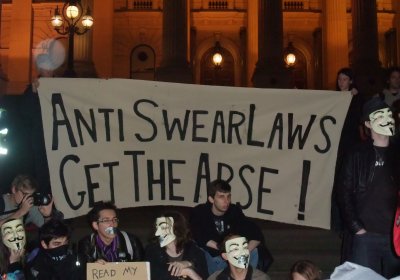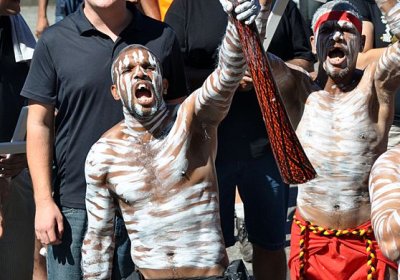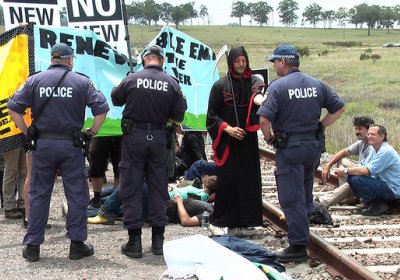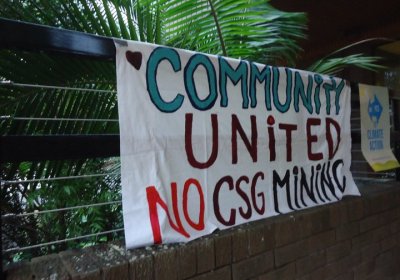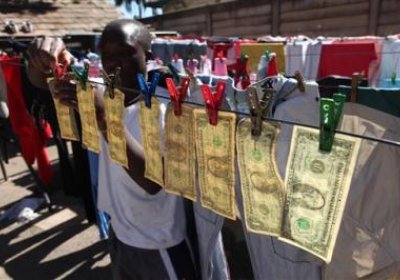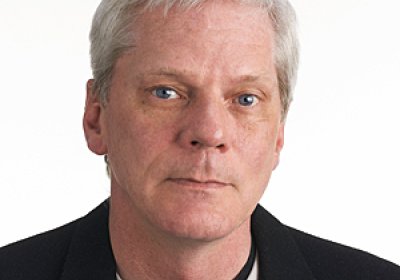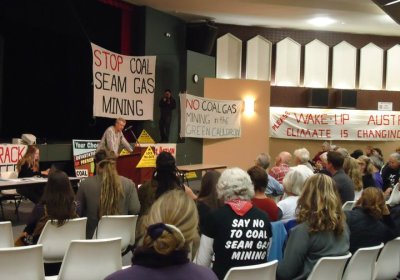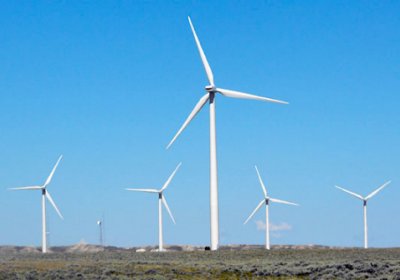In the first week of June, the Baillieu state government introduced new laws that give Victorian police the power to issue on-the-spot fines of up to $240 for using offensive language.
Victorian police already had the power to charge people with indecent language offences, but they had to do this through the court system. This meant that people had the opportunity to defend their behaviour through the judicial system and were more likely to get a fair hearing.
884
Again.
Yes. Again.
Another again to join a conga-line of agains going back decades.
Again, another victim of the callousness of the NSW Department of Corrective Services.
In this case, the unnecessary and useless death of 33-year-old Adam Grant le Marseny, also known as Adam Grant Morrison, who died in the corrective services cells of the Sydney police centre on, I believe, the night of May 28, 2011.
In April and May, while in South America as part of solidarity brigades to Venezuela and Bolivia, I met some people who have risked everything to make their communities and their countries better places to live. I became so used to people passionately fighting for things they believed in that when I returned to Australia I received a sharp shock.
Suddenly I was back among people who, in general, did not care much or want to know about issues of inequality or other problems in our society. It is for these people that this is written.
A magistrate dismissed charges against 49 climate activists on June 16. The protesters had committed non-violent civil disobedience at a climate camp against a new coal-fired power station being built in the Hunter Valley.
The charges related to an action on December 6 at the NSW climate camp near the Bayswater Power Station in the Hunter Valley — Australia’s single largest source of carbon pollution.
The ruling means they have no conviction recorded, no criminal record and their fines dropped.
On Friday June 3, NSW Greens mining spokesperson Jeremy Buckingham launched a bill in state parliament that would place a 12-month moratorium on the coal seam gas (CSG) industry in NSW and prohibit CSG mining in the Sydney metropolitan area.
Speaking at the bill launch, Buckingham pointed out the risks associated with CSG extraction, including wastewater, fugitive emissions, land impact and depletion of aquifers.
About 50 people rallied on June 16 under the slogan, “Don’t derail Altona. Save our trains.”
The rally was called to protest the Victorian government’s cuts to rail services on the Werribee line’s Altona Loop.
The service cuts mean the Altona Loop will lose direct access to the city loop and all of its express trains. Services will be cut from 20 to 22-minute intervals during peak periods.
Outside peak periods the service will be cut to a train shuttle from Laverton to Newport so most passengers will have to change trains.
Multinational gas company Dart Energy met with residents from St Peters on June 6 to discuss the company’s plans to carry out exploratory coal seam gas (CSG) drilling in Sydney’s inner-west before the end of the year.
Dart have plans to drill at a now vacant industrial site in St Peters close to residential properties and Sydney Park.
The exploration licence held by Dart covers not only St Peters but an area of 2392 square kilometeres, encompassing most of metropolitan and suburban Sydney.
It wouldn’t be okay for Amnesty to take donations from military dictators or for Animal Liberation to accept abattoir-owners as sponsors.
Such scenarios are so unlikely they just sound bizarre.
So why should we accept that it’s okay for Australian environmental groups to take money from fossil fuel corporations?
Surely it’s the ultimate conflict of interest. How can groups set up to stop climate change accept cash from companies that make millions from polluting the planet?
The Pilliga State Forest in northern NSW will be turned into a gas field if the government approves Eastern Star Gas's (ESG) mining proposal for the region.
The proposal set out by ESG seeks to develop the Pilliga into the state's largest coal seam gas (CSG) project.
The development would include the drilling of more than 1000 gas wells and the clearing of vast stretches of native bushland to make way for gas pipelines and other associated infrastructure, such as a water treatment facility and access roads.
At a public debate on June 16, Icelandic journalist and WikiLeaks spokesperson Kristinn Hrafnsson said WikiLeaks has strengthened democracy and revealed wrongdoings. Most of the 600-strong crowd said they agreed.
At the end of this year’s second IQ² debate, 58.2% of the audience voted for the proposition: “WikiLeaks is a force for good”. Just 32.2% said they disagreed while 8.8% were undecided.
The debate did sway some people, however. Polled before the debate, only 6.3% of attendees said they disagreed and 30.7% said they were undecided.
About 150 representatives engaged in the campaign against coal and coal seam gas mining attended the inaugural annual general meeting of the Lock the Gate Alliance, held in Murwillumbah, NSW, over June 11 and 12.
Ninety-one percent of Australians think the government should take more action to roll out renewable energy and create green jobs and 86% say the government should develop a plan to get to 100% renewables.
These were some of the outcomes of one of Australia’s biggest ever polls on climate change and climate policy, which was released by the 100% Renewable Energy Campaign on June 14.
- Previous page
- Page 3
- Next page
